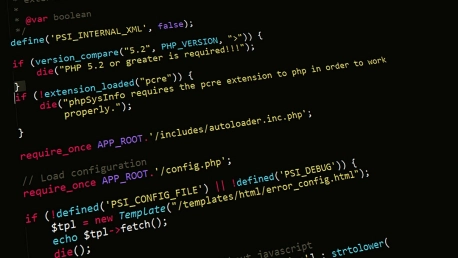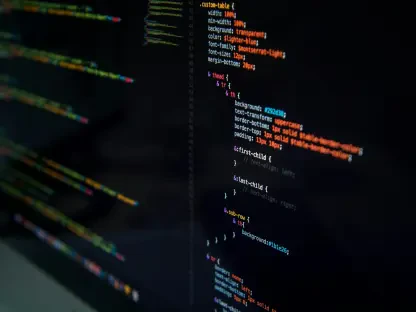In July, Microsoft took the surprising step of discontinuing support for the PHP programming language on Windows. Although the decision was explained by the company’s engineers, the announcement raised a couple of important questions. Will PHP slowly fade away? Will it still be relevant in the coming years?
Why Microsoft Pulled the Plug on Windows PHP Builds
Microsoft recently announced that starting with version 8.0 of PHP, the company will no longer provide the support it currently provides for PHP 7.2, PHP 7.3, and PHP 7.4. As a result, PHP 7.2 will stop being officially supported starting in November, while PHP 7.3 will not receive security fixes until November. PHP 7.4 will have an additional year of bug fixes, followed by a year of security fixes. The development of PHP 8.0 is currently moving forward.
The most plausible argument for Microsoft’s decision is that newer Microsoft development models, like .NET Blazor and Azure Static Web Apps, offer similar options, while using fewer resources. Most importantly, the alternatives still work cross-platform, with a roadmap that supports newer Web technologies.
“As one Hacker News reader pointed out, Microsoft’s original managed PHP offering on Azure App Service was running only on Windows, but Azure App Service now also supports Linux, so there’s not as much need for PHP any longer”, Liam Tung wrote in ZDNet.
The Hype Around Other Languages
Without a doubt, PHP can get overshadowed by programming languages like Python and JavaScript at times, but there’s still a huge demand for PHP developers. Novice developers often prefer learning Python as their first language and rarely consider adding PHP to their skillset. Although PHP still dominates the web development segment, experts argue that this will most likely change in the future.
According to the TIOBE Index for October 2019, PHP is struggling to keep its spot among the top 10 most popular programming languages. C ranks first, followed by Java, Python, C++, and C#. It’s important to mention that TIOBE uses some controversial metrics to determine the popularity of programming languages.
Arguably, the top drawbacks of PHP are the lack of specialized libraries, security problems, difficult to use for programming large applications, and a loss of popularity. For example, PHP cannot compete with Python in developing web applications empowered by machine learning. Its security flaws are related to its open-source nature. This means that code vulnerabilities become common knowledge once they are found. Some may argue that this drawback can be equally attributed to other open-source technologies in general and that the security level depends on a developer’s expertise and practices.
The new WordPress Gutenberg Editor brought block-based editing to WordPress. The fact that Gutenberg blocks are made using JavaScript and not PHP caught many experts’ attention and made them wonder if PHP is indeed dead. The simple answer: “NO!”
Is PHP a Dying Language? Definitely Not
Calling the oldest server-side programming language dead might be a bit premature and here’s why.
Since 1994, PHP has consistently been one of the best programming languages for web development. It’s convenient and easy to learn, has plenty of useful libraries, detailed documentation, and, maybe the most important point, it has a huge community.
Usage statistics show that approximately 75% of websites still use PHP as their programming language. Such a figure certainly doesn’t indicate a dead programming language. It currently powers some “giant” applications and websites, such as WordPress, Facebook, Wikipedia, and many others.
The Reasons Why PHP Is Here to Stay
Open-source architecture and a potent community
Flexible and scalable websites and web tools are best built as open-source, and PHP implements this model like nothing else. A programming language falls into oblivion without developers, and that’s simply not the case with PHP. It still has a huge, lively, and supportive community.
Relevant features and accessibility
One of the biggest benefits of PHP is its accessibility. You can depend on PHP almost everywhere in the programming world, no matter what you need to do. PHP is a great language to integrate with your browser and just code away. Moreover, with each new version, it is only growing harder, faster, better, stronger.
A short learning curve and a wide selection of developers for business owners
PHP is one of the most intuitive languages and is widely considered friendly for programming beginners. Fair enough, mastering development requires practice and dedication. As a business owner, you will never face a shortage of PHP developers to choose from. No matter how intricate the task, employers can always find PHP developers of all stripes and colors, from juniors and seniors, to freelancers and programmers specializing in a variety of niches.
PHP remains a language used by legions of web developers all around the world, so chances are very good it’s not going away anytime soon. Will PHP slowly fade away? Probably! Will it still be relevant in the coming years? Yes!









